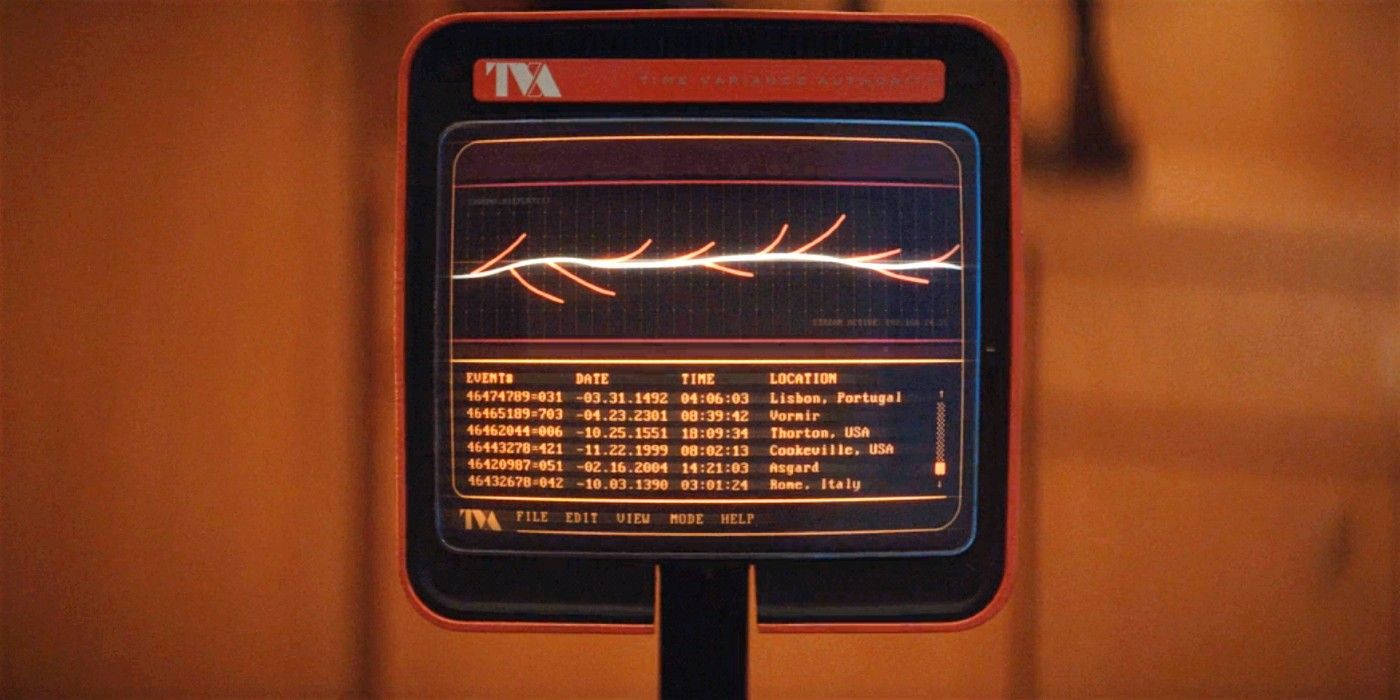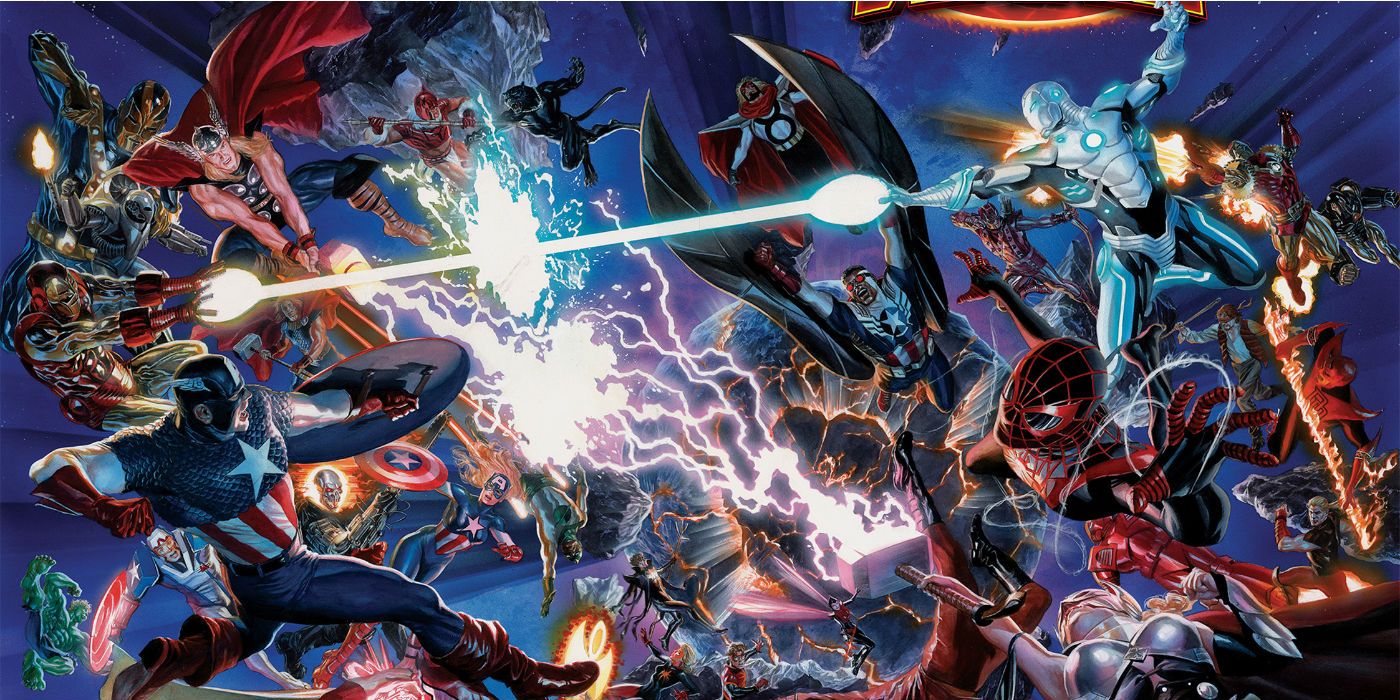
Loki could mark the beginning and the end of a Multiversal time loop. At last, Loki has unleashed the Multiverse of madness. Avengers: Endgame saw Earth's surviving heroes use time travel to put right Thanos' victory and restore half the life in the universe, that he had erased with a snap of his fingers. But, although Captain America attempted to seal all the branches of time they had created by collecting the Infinity Stones, there was one timeline he couldn't deal with - one in which Loki escaped with the Tesseract in the aftermath of the Battle of New York. It fell to the Time Variance Authority to deal with this particular branch of the timeline, and soon this variant of Loki was discovering the secrets of the Multiverse.
It seems the Multiverse naturally skews towards chaos, and any moment could potentially create a branch in the timeline - even someone simply being late for work. This results in countless alternate timelines, many similar to the prime timeline but some radically different. Unfortunately, in many of these timelines, a single human being would discover the existence of the Multiverse around the 30th century. Some variants of this being were peaceful, but others were conquerors and despots, and soon a Multiversal war threatened to destroy all of creation. One variant acquired an edge over all his other selves, using a creature called Alioth to consume them, and he established the TVA to police the timeline and prevent new branches from being created. Dubbing himself "He Who Remains," this being based himself in a Citadel at the End of Time, monitoring the timeline lest his reign be challenged.
But Loki ended with He Who Remains killed, and a new Multiverse emerging. The story of this Multiversal adventure is expected to continue in Marvel's What If..?, Spider-Man: No Way Home, Doctor Strange in the Multiverse of Madness, Ant-Man & the Wasp: Quantumania, and of course in Loki season 2. But is it possible Marvel has already revealed how their Multiversal tale will end?

Loki subtly suggests the MCU's Multiverse may well be locked in a cycle of creation and destruction. In the absence of an organization like the TVA pruning branched timelines, a Multiverse develops - and inevitably leads to conflict, because sooner or later the branched timelines become aware of one another. No doubt a lot of these timelines are peaceful, but that doesn't really matter; all you need are a handful of timelines that are militant, and the result is a Multiversal war. What's more, because all the branched timelines originate from a single prime timeline, it's reasonable to assume the key player in this Multiversal conflict is always destined to be the same person - Kang the Conqueror. He is the one who will discover the Multiverse in the 30th century, with this discovery causing the war.
There are only two possible ultimate outcomes for a Multiversal war, for any armistice would naturally only be temporary. Either all creation will be destroyed in the conflagration, or one variant of Kang will achieve an edge over the others - Alioth, a weapon that no Kang can defeat but that can apparently be controlled. And when one Kang has destroyed his rivals, he will establish a power base to secure his supremacy and begin destroying other timelines so no more Kangs can ever emerge. In other words, He Who Remains is truly inevitable - and when he finally dies, the Multiverse will emerge again, and it will all happen once more.
This may just be history repeating itself - but, more likely, it is actually an unending cycle of creation and destruction, of natural chaos and human will. That would be perfectly fitting with the backstory of Kang the Conqueror in the comics, for as much as he likes to pretend he has freedom of will, in truth Kang has always been a paradox created by his own time travel, railing against his destiny but unable to change it because he is as much a temporal event as a human being. He Who Remains could even have been aware of this, adding extra meaning to his final words to Sylvie after she had killed him; "I'll see you soon."

If this theory is correct, then Miss Minutes and He Who Remains didn't just give viewers a primer on the history of the MCU's Multiverse in Loki; they also told us what to expect going forward. Variants of Kang will emerge - the ending of the Loki season 1 finale confirmed one has already taken over the TVA - and they will initially interact peacefully. But it won't take long for some more brutal and militant variants to declare war on the other timelines, and the whole Multiverse will be plunged into madness again. This may well culminate in something resembling Marvel's Secret Wars event from the comics, where the different timelines all collided in an event that almost destroyed the Multiverse; Loki's head writer Michael Waldron certainly teased Loki was hinting at Secret Wars. In the end, though, one version of Kang will emerge triumphant using Alioth, and he will found the TVA to prune branched timelines. And so the cycle will begin again.
Loki star Tom Hiddleston has said he'd love to carry on playing the part for the rest of his life, and such a Multiversal arc would give him the opportunity to continue for years. After all, if the Multiverse is cyclical in nature, then this variant of Loki is a key part of the cycle - instrumental in both its end and its beginning, aware of the existence of Alioth and so potentially a crucial ally for the Kang who triumphs in the end. There would be a certain degree of irony to this because Loki - the God of Mischief, who causes chaos wherever he goes - would in truth be part of a stable cycle, a system created by the chaos of creation and the structure imposed by human will.
Loki will return for season 2.
from ScreenRant - Feed https://ift.tt/3Bg5uxj

No comments: